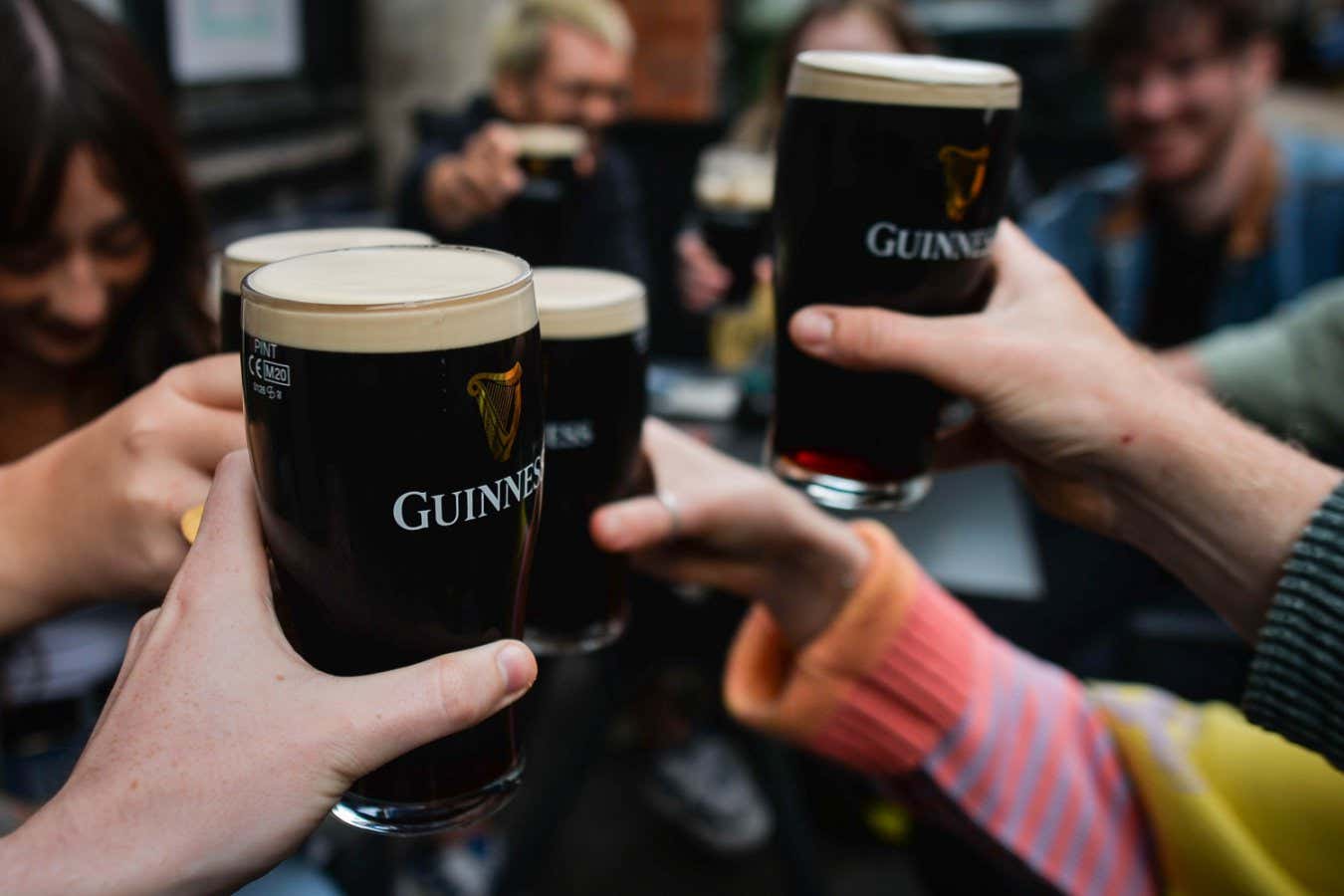The Guinness brewery has kept a record of the yeast strains it has used going back to 1903 – a genetic analysis shows these are distinct from those used to brew other Irish beers
By Chen Ly
12 January 2024
Some yeasts currently used to brew Guinness are descendents of those used in 1903
Artur Widak/NurPhoto SRL/Alamy
The yeast strains used to brew Ireland’s classic stout, Guinness, are genetically distinct from the ones used to make other Irish beers.
Brewer’s yeast is an essential component of beer production. During fermentation, these microorganisms convert sugars from malt into alcohol and carbon dioxide. Using different strains of this yeast can result in different types of beer, such as stouts or lagers, and can even influence its flavour profile.
Daniel Kerruish at food and beverage company Diageo Ireland Unlimited and his colleagues investigated the evolution of the yeasts used to brew Guinness over the years based on records kept by the Guinness brewery on the yeast strains used in its malty, bitter stout since 1903.
Advertisement
Read more
Genetically modified tobacco plant produces cocaine in its leaves
The team compared the genomes of 13 strains of S. cerevisiae that are currently or have historically been used to brew Guinness, to 160 other strains, including six used in other Irish breweries.
Though the Guinness yeasts and the other Irish brewing yeasts belonged to the same lineage, Kerruish and his team found that the former were genetically different enough that they belong to a previously unidentified subpopulation. The non-Guinness Irish brewing yeasts were more closely related to strains that come from Britain.
